Q: What do you do if you get involved in a bicycle collision?
Call Police: You and the motorist have a legal obligation to remain at the scene of the collision and report to the police any accident that involved any physical or property damage.
Get Information From the Driver: Bicyclists and motorists have a legal obligation to exchange information at the scene of an accident including name, address, phone number, driver’s license number, license plate number, make of car, and insurance policy number.
Get Names and Phone Numbers of Witnesses: Witnesses can be helpful in describing the accident or helping you record the information you need.
Get Police Collision Report Number: Before the police leave the collision scene, write down the collision number.
Report How the Collision Happened: Draw a detailed map or diagram using arrows to show the position and direction of all vehicles involved.
Seek Medical Attention: Consult a doctor immediately for an assessment of injuries.
Preserve Evidence: Photograph any visible injuries, keep any damaged clothing and bike parts, get a written assessment of the damage to your bicycle and avoid having the bike repaired, if possible, until the matter is concluded.
Rules of the Road
Here are some laws to be aware of whether you are a cyclist or motorist:
- Riding on the Road: When riding on a roadway, a cyclist has all the rights and responsibility of a vehicle driver (RCW 46.61.755). Cyclists who violate traffic laws may be ticketed (RCW 46.61.750).
- Roads Closed to Bicycles: Never ride on roadways closed to bicycles (RCW 46.61.160).
- Children Bicycling: Parents or guardians may not knowingly permit bicycle traffic violations by their children (RCW 46.61.700). By implication state law requires parents to teach their children the rules of the road before allowing them to ride on public roadways.
- Direction of Travel: Bicyclists must travel in the same direction as automobiles (RCW 46.61.770).
Side-by-Side: Cyclists may ride side-by-side, but not more than two abreast (RCW 46.61.770).
- Riding at Night: For night bicycle riding, a white front light (not a reflector) must be visible for 500 feet and a red rear reflector is required. A red rear light may be used in addition to the required red reflector (RCW 46.61.780).
- Hand Signals: Bicyclists must use hand signals when on public roadways (9CW 46.61.758).
- Speed: Every cyclist upon the roadway must ride at a rate of speed less than the normal flow of traffic and appropriate for the road conditions (RCW 46.61.770).
- Sidewalks: Drivers crossing a sidewalk must yield to bicyclists on the sidewalks.
- Crosswalks: In crosswalks, cars must yield to bikes. However, the law requires bikes to yield to pedestrians (RCW 11.44.150).
For articles about Bike accidents and injury law, click here.
